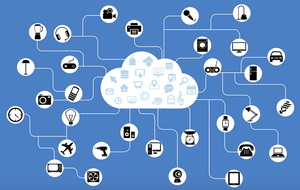Five Reasons the IoT Matters to MSPs
If you as an MSP are feeling some pressure to identify your role in the IoT (Internet of Things), you should be. The IoT looms large, and, according to new Research and Markets survey, it is poised for explosive growth.
September 29, 2016

Sponsored Content
 If you as an MSP are feeling some pressure to identify your role in the IoT (Internet of Things), you should be. The IoT looms large, and, according to new Research and Markets survey, it is poised for explosive growth.
If you as an MSP are feeling some pressure to identify your role in the IoT (Internet of Things), you should be. The IoT looms large, and, according to new Research and Markets survey, it is poised for explosive growth.
A number of drivers will fuel this growth–continued business investment in digitization, government IT initiatives, increased spending on security services, and significant growth in the business and consumer mobile subscriber base.
Research and Markets predicts the IoT managed services market will increase at a 15.3 percent CAGR between now and 2020. MSPs, the research firm argues, will play an essential role in the adoption of IoT technologies because the vast numbers of connected IoT devices–50 billion by 2020, according to Cisco–will require MSPs to manage IoT-related functions such as device management, connectivity and network integration.
Preferably, all of this functionality will be handled from a single management platform with visibility into multiple connected systems–something MSPs know how to do well. In fact, no one is better equipped to handle IoT-related services MSPs. Here are five reasons why the IoT matters to you:
1. New Revenue
With a 15.3 percent annual growth rate, the potential for new MSP revenue is significant. Providers who educate themselves early about the IoT and set up their companies to manage the new connected systems have a chance to establish themselves as IoT authorities and, as a result, create a revenue stream before competitors have a chance to. As with any emerging technology, however, start slow and do your research to avoid any serious missteps.
2. Systems Management
As IoT systems go online, they will trigger a barrage of data collection that will require proper organization and analysis so businesses can use the data in meaningful ways. Most businesses lack the staff and resources to handle this influx of data. Many will turn to service providers to manage the systems and help them figure out how to interpret the data and use it to implement process changes and launch new products and services.
3. IoT Security
One of the biggest challenges companies will face with IoT implementations is how to secure data and prevent system breaches. According to Infoholic Research, “managed security services are expected to play a key role in the IoT managed services market as security is one of the key challenges for IoT technology adoption.” This is another area where MSPs, especially those who already deliver managed security services, will play a key role.
4. Data Storage
Next to systems management and security, data storage will be the biggest challenge of IoT implementations. All the data collected by IoT systems will have to be transmitted and archived in compliance with applicable regulations. Here too, businesses will turn to MSPs to help them figure out how to store the data and make it readily available for analysis to spot historical patterns and facilitate long-term business planning.
5. New Market Opportunities
Another reason IoT matters to MSPs is its potential to create new market opportunities. Those opportunities will come not only from existing customers but also new ones. New business is always welcome because it helps you grow your company. Considering that the IoT is currently in the initial stages of adoption, the potential for new business is vast–and an opportunity no MSP should ignore.
 Marvin Blough is StorageCraft’s Vice President of Worldwide Sales where his focus is on expanding the company’s global reach by establishing channel partnerships that enhance the profitability for the channel partner.
Marvin Blough is StorageCraft’s Vice President of Worldwide Sales where his focus is on expanding the company’s global reach by establishing channel partnerships that enhance the profitability for the channel partner.
Guest blogs such as this one are published monthly, and are part of MSPmentor’s annual platinum sponsorship.
You May Also Like
